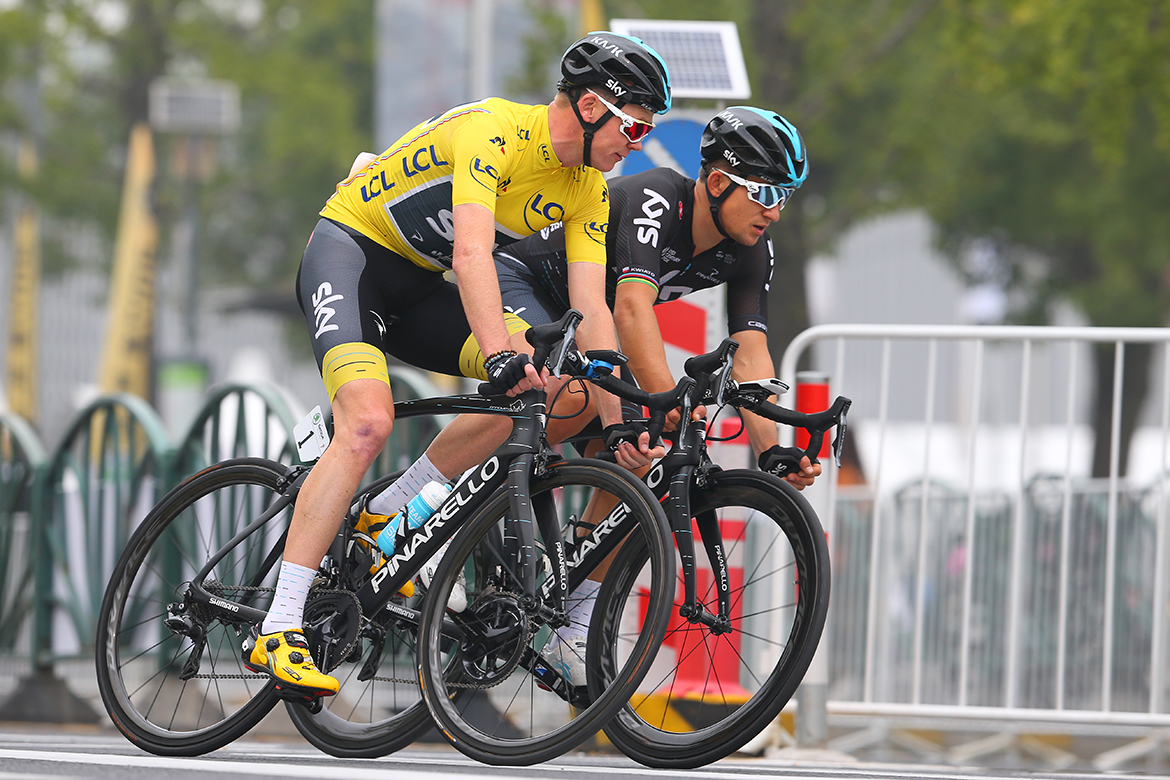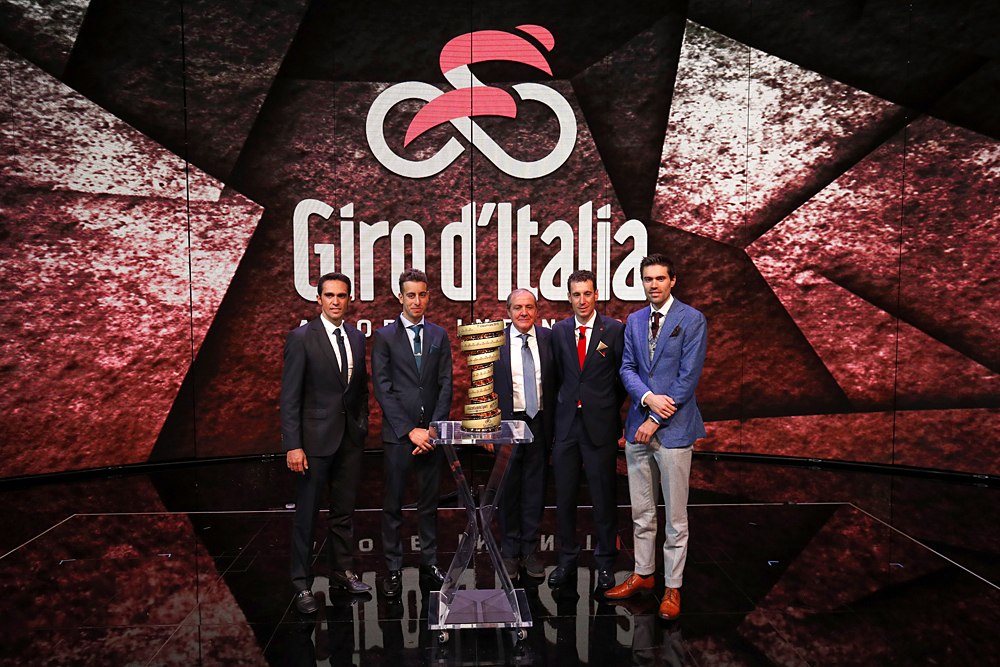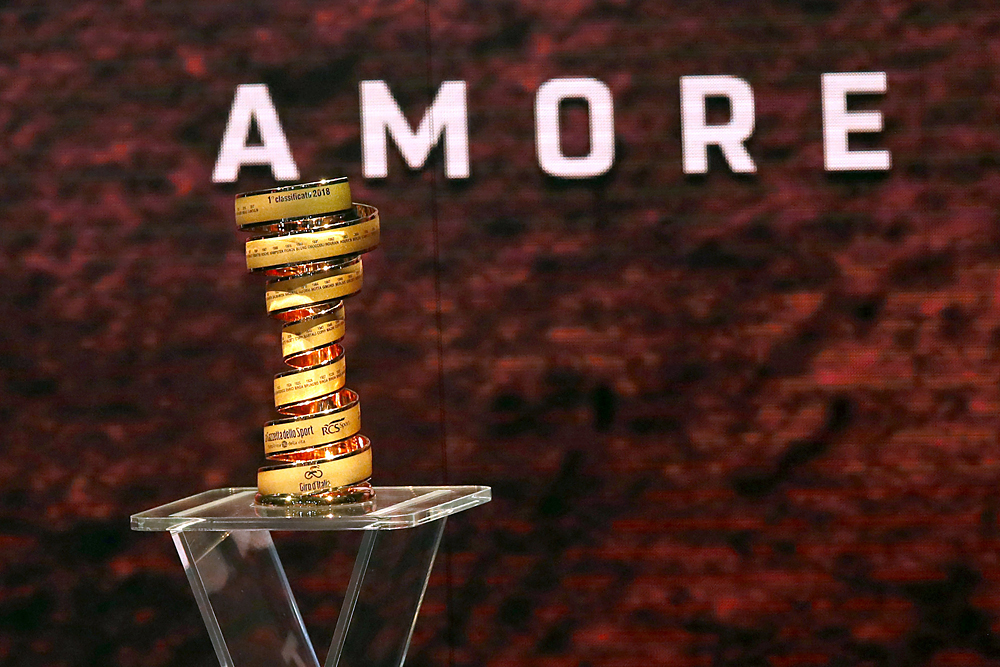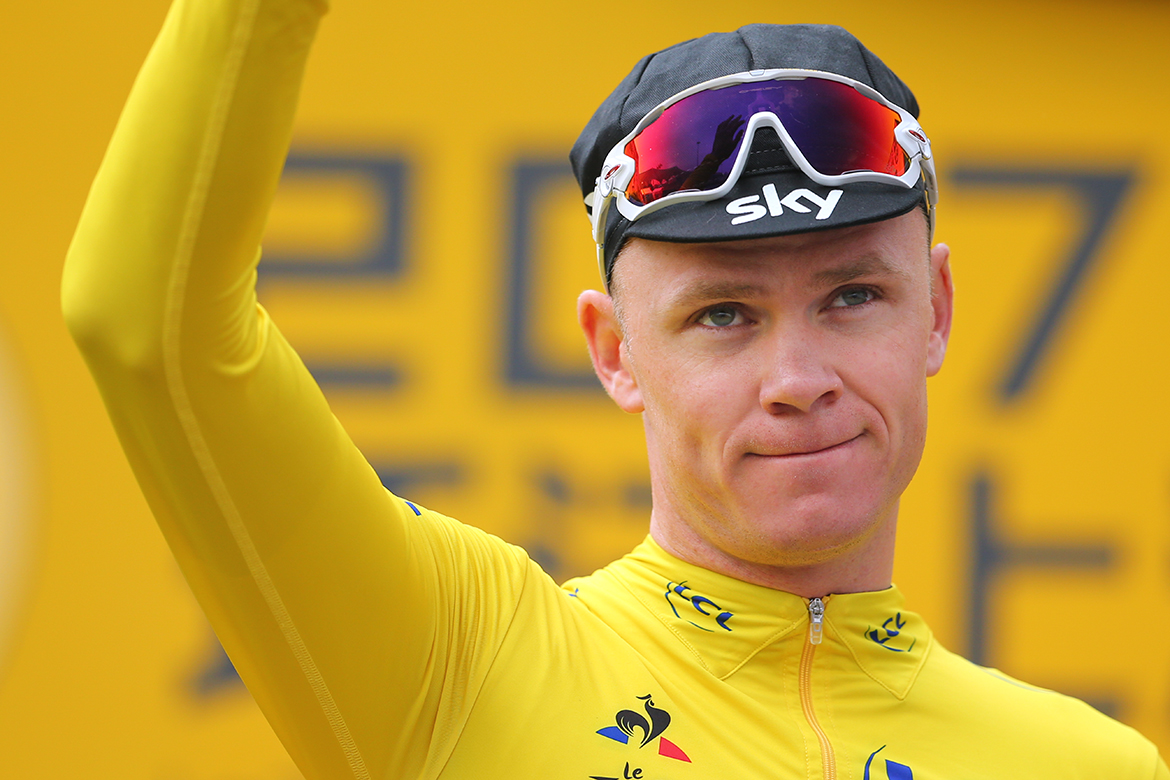Giro d'Italia organisers not warned about Froome's salbutamol case
Vegni fears a repeat of Contador scenario






The organisers of the Giro d'Italia say they were not alerted to Chris Froome's adverse analytical finding (AAF) for excess asthma medications prior to the announcement on November 29 that he would target next year's race.
Chris Froome returns adverse analytical finding for salbutamol
Nibali: Chris Froome salbutamol case is bad news for cycling
Vuelta a Espana organisers call for 'extreme caution' after Froome salbutamol result
A lot of explaining to do: The questions raised by the Chris Froome salbutamol case
Chris Froome: I haven't broken any rules
'A scandal' - Tony Martin sounds off on Chris Froome's salbutamol case
Movistar steer clear of Froome salbutamol case at team launch
Froome was notified on September 20, 2017 that a doping control sample he gave during the Vuelta a España exceeded the WADA limit for salbutamol, an asthma drug he uses regularly.
Despite being already involved in the process of trying to demonstrate to the UCI that his values were not the result of exceeding the maximum allowed dose of his asthma inhaler, Froome stated his intentions to race the 2018 Giro d'Italia and Tour de France.
RCS Sport put out an official statement on Thursday, lending its support to the UCI’s independent anti-doping wing and reiterating its denial that Froome would receive start money to compete in the race, which is due to start in Jerusalem on May 4.
"Chris Froome's decision to participate in the 2018 Giro d'Italia was his own, taken along with his team's management, and is a choice that RCS Sport, as organiser of the Giro d'Italia appreciated; no money has been paid to the rider by RCS Sport," the statement read in response to questions from the BBC.
"Both RCS Sport and the Giro d'Italia's race direction reaffirm their full support of the Cycling Anti-Doping Foundation (CADF) and will respect whatever decisions are to be taken in the future."
Froome has asserted that he has broken no rules, and is cooperating with the UCI to provide his medical information, but he could face a lengthy process before his case concludes. Under the UCI's rules he could face anything from a reprimand to a two-year ban.
Get The Leadout Newsletter
The latest race content, interviews, features, reviews and expert buying guides, direct to your inbox!
Race director Mauro Vegni, speaking to Italian website Tuttobici and Italian newspaper Il Giornale, admitted that the situation with Froome together with the delicate political climate in Jerusalem - one exacerbated by US president Donald Trump's recognition of the city as Israel's capital - has meant "the 2018 Giro hasn't had a good start".
"Everyone knows the situation in Jerusalem, everyone can see it and it's been written about," Vegni said. "We're monitoring the situation, that's why we are in daily contact with the Italian Foreign Ministry. I'd like to clarify that at the moment everything is confirmed as planned, we're starting in Jerusalem."
- Chris Froome returns adverse analytical finding for salbutamol
- Will Chris Froome's salbutamol result sink Team Sky?
- Vuelta a Espana organisers call for 'extreme caution' after Froome salbutamol result
- Nibali: Chris Froome salbutamol case is terrible for the sport
- Froome's salbutamol case and what it means for him, Team Sky and cycling - Podcast
Vegni said he fears that another situation, similar to that of Alberto Contador in 2011, could damage the image of the Giro d'Italia.
In 2010, Alberto Contador tested positive for clenbuterol during the Tour de France, but disputed the result, arguing it was the case of food contamination. He went on to win the 2011 Giro d’Italia before that results was stripped in an arbitration decision in 2012. Although Contador's case was far more complicated, a similar scenario could play out with Froome who, under the WADA and UCI anti-doping rules, is free to race until his case is adjudicated and a final appeal heard by the Court of Arbitration for Sport.
The UCI Anti-Doping Tribunal has no time limit in its rules for cases to be concluded, meaning Froome's case could drag on well into the 2018 season.
If Froome races and then loses his case, as Contador did, he could be stripped of the results dating back to the notification of his AAF on September 20.
"I firmly believe that Contador's case was unique, that it can't be repeated," Vegni said. "Cycling can't afford things like that: if a rider can race, they've got the right to do it, to win or to lose. I think its something the UCI has to assume responsibility for."
Froome's announcement of intent to race the Giro d'Italia was a big publicity boon for RCS Sport and the Giro d'Italia. The salbutamol case of Froome has left Vengi baffled.
"I think it's right that we keep our guard up to guarantee the highest possible credibility. As one of the biggest organisers in the world, I've got to say that the timing of it all leaves me perplexed," he said. "Perhaps we're just unlucky. But as soon as we announce in big style the presence of Froome… bang, this lands on us…"
Listen to the Cyclingnews podcast, and to subscribe, click here.